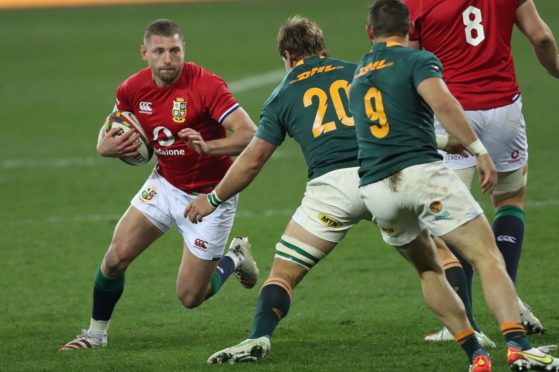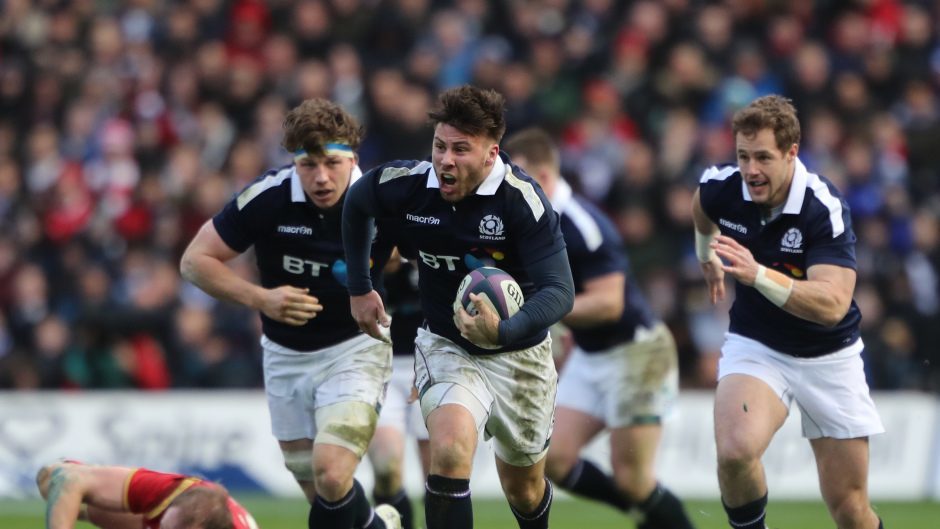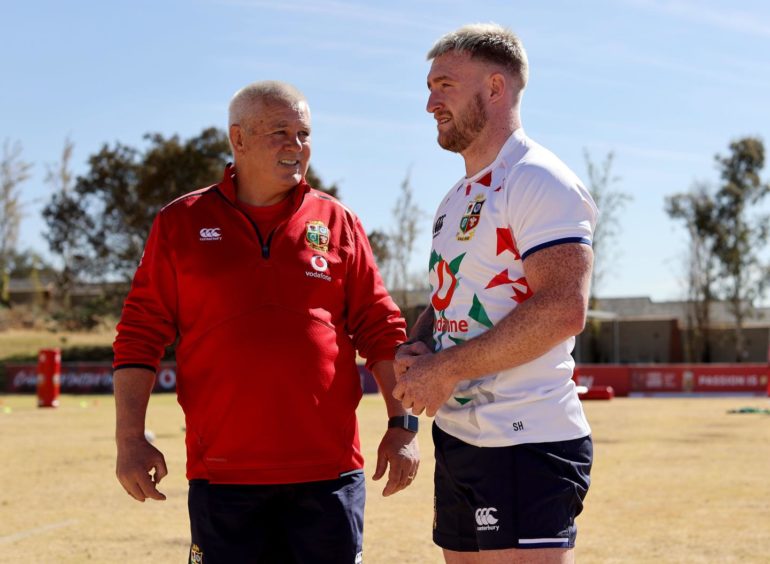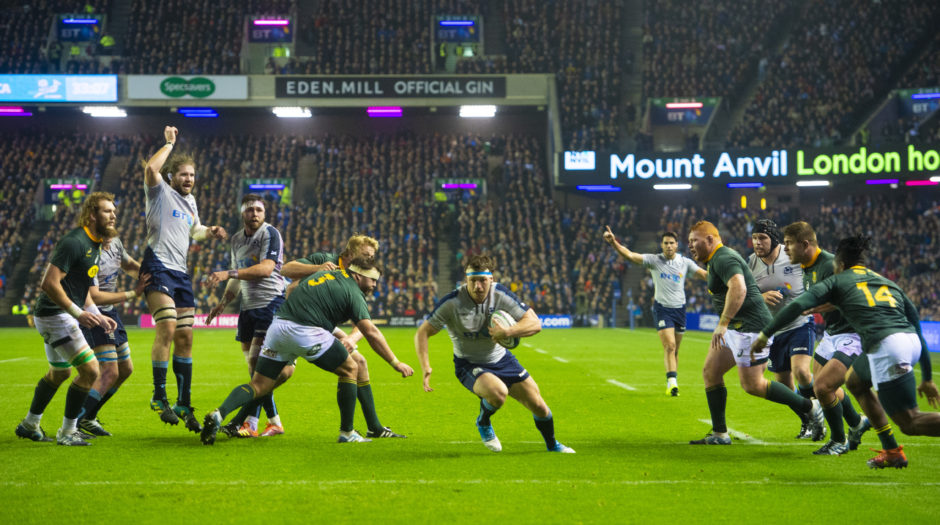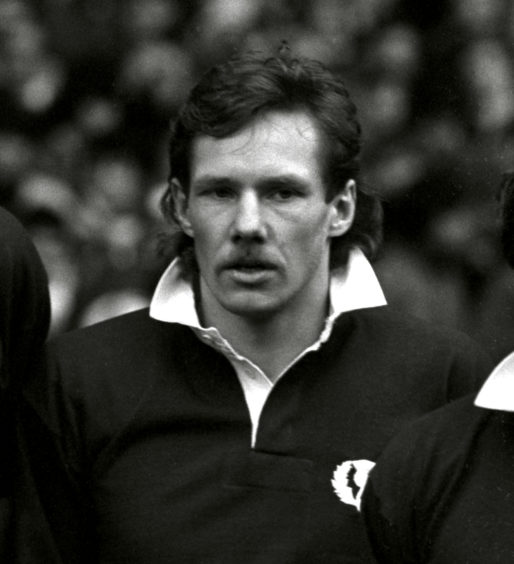If you like your sporting action infused with twists a-plenty and suspenseful climaxes, then the British and Irish Lions’ clashes with South Africa must have been on a par with Alfred Hitchcock.
Personally, I thought the series was closer to a trilogy of video nasties, suffused with brutal challenges and protracted investigations of alleged bites, gouges, high tackles and dangerous collisions. As a spectacle, in terms of providing aesthetic thrills and champagne moments, you might as well have tuned in to “Reservoir Dogs”.
The hosts, whose voluble coach, Rassie Erasmus, seemed to spend most of his time airing grievances and indulging in conspiracy theories, is obviously a devotee of the X Files. From the start of the tour, anything and everything came under scrutiny and it’s hardly surprising that he is facing a misconduct charge by World Rugby.
But, in the final analysis, his charges squeaked home 2-1 with a 79th-minute penalty in the Third Test from the veteran Morne Steyn and even if Erasmus is punished in the days ahead, he might argue that the end justified the means.
Ultimately, the proceedings have done little to dispel the suspicion that the Lions’ days are numbered. After all, their next tour is scheduled for Australia in 2025 and one has to wonder why so much effort and financial resources should be expended on assembling a composite squad when all the home nations have shown themselves to be perfectly capable of beating the Wallabies in their own right. (The Scots won the most recent meeting of the sides by a record margin of 53-24 at Murrayfield in 2017).
However, there is one major positive which we can derive from the events of the last few weeks. And that’s the evidence that Gregor Townsend has little to fear from the opposition when he gets round to preparing for the 2022 Six Nations Championship.
None of the Scots selected – apart from Duhan van der Merwe – have had their reputation diminished during the campaign. Stuart Hogg faced problems in the second contest, but Liam Williams fared no better in the third. And we can celebrate the proof that nobody has a better half-back pairing than Ali Price and Finn Russell, while Hamish Watson should have an almighty point to prove in next year’s tournament.
Yes, the combative back row forward was involved in one of the myriad controversies – there wasn’t much else to talk about and certainly a dearth of exciting rugby – when he escaped a card for his tip tackle on Willie Le Roux in the opening Test in Cape Town. But he is one of those effervescent, explosive and endlessly energetic performers who was instrumental in propelling the Lions to a nerve-shredding victory.
They missed him when he wasn’t there in the subsequent contests. And, all over the pitch, the Scottish contingent among the Cape Crusaders will have learned and benefited from the experience. They lock horns with England in Edinburgh on the opening day of the 2022 competition and will be defending the Calcutta Cup against the same opponents they famously bested at Twickenham six months ago.
And, do you know what, I really fancy their chances, not only against Eddie Jones’ men, but in the rest of their tussles, at home to the French and away to Wales, Italy and Ireland. It might be tempting fate to go so far as tipping them for their first Grand Slam in more than 30 years, but Scottish success has regularly followed Lions tours and they were the catalyst for the twin Slam triumphs in 1984 and 1990.
There’s no mystery as to why this should be the case. John Rutherford, the prince of centres in the 1980s, was among those who travelled to New Zealand in 1983 and although he and his colleagues suffered at the hands of the marauding All Blacks – who were determined to atone for losing the 1971 series – vital lessons were learned.
Rutherford told me: “When you first join up with the Lions, you tend to be a bit overwhelmed and, in the early days, you don’t have the same confidence as the lads from Wales and England in particular.
“But then, when you actually begin training with them, you soon discover that they aren’t actually any better than you. There were eight of us on the tour – and the likes of David Leslie didn’t even make the party – and we saw pretty quickly that we didn’t have any reason to have an inferiority complex.
“I remember Roy Laidlaw saying to me on the plane back home that he fancied Scotland’s chances in the 1984 Five Nations.
“We didn’t make a big song and dance about it. But we knew, as a squad, we were capable of beating anybody in the championship and we had France and England at Murrayfield, which was usually the schedule which gave us the best opportunity.”
The sport has changed dramatically since then and not always for the better as the bish-bosh battles in South Africa amply demonstrated. Yet, even if the campaign finished in disappointment, it could prove the launch pad for Scottish glory next winter.
